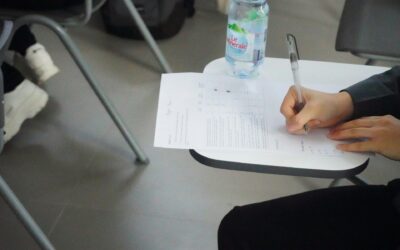Grow your performance in just two weeks of focused preparation for the USMLE Step 1. This exam is one of the toughest milestones for medical students and IMGs, testing not only medical knowledge but also stamina, focus, and test-taking strategy. No matter where you are in your prep journey, even a short two-week period can bring noticeable improvement—if you use the right approach.
This guide shows you how to make those two weeks count. You’ll learn strategic ways that maximize study time with resources like UWorld and First Aid for the USMLE. You’ll also learn how to organize your days, target weak areas, and keep your mind sharp so you can walk into test day with greater confidence.
USMLE Step 1: Proven Ways to Raise Your Score in 2 Weeks
Let’s explore the most effective strategies you can apply to prepare for the USMLE Step 1 and optimize your performance in two weeks.
Build a Realistic Study Plan
A good study plan is the key to improving Step 1 performance in 2 weeks. Without a plan, you may waste precious hours. Your study schedule should focus on three main areas:
- High-yield review
- Practice questions
- Self-assessment
Make sure to divide each day into blocks. For example, spend one block reviewing First Aid or Pathoma. Use another block to answer UWorld questions. Use the last block to review Anki cards or flashcards. At the end of the day, get a quick recap of weak areas.
Remember, it is not the right time to explore new resources—it’s to master the ones you already have. Focus on UWorld, First Aid, Pathoma, and your Anki deck.
Master UWorld: Learn Smarter, Not Harder
UWorld is the best question bank for the USMLE Step 1 preparation. In the last two weeks, your goal is not just to answer questions but to learn from them. Do as many practice questions as possible. Moreover, aim for full-length practice blocks of 40 questions. This is how you move from knowing the material to mastering the exam itself.
Take the time to review every incorrect answer carefully. After each block, pause and analyze your performance—look for patterns in the mistakes you’re making. Did you miss a biostatistics question? Spend extra time on that topic. Struggling with pathology? Go back to the relevant sections in Pathoma or First Aid. Studying this way makes every review session smarter and more effective.
Ace NBME & UWSA: Know Your Weak Spots
Self-assessment is one of the best ways to improve your performance. NBME practice exams and UWorld self-assessments (UWSA) are designed to mimic the real exam. They show you your current Step 1 score range and highlight your weak areas. Use these assessments not just to see your score, but to guide exactly what you should focus on next.
Take at least one NBME during the last two weeks. Some students take the NBME two weeks before the exam and the UWSA a few days before the exam. This gives you a clear idea of your progress. Review the NBME questions in detail. Even though you may not get full explanations, you can research each concept in First Aid or UWorld. This type of review helps fine-tune your preparation.
Target High-Yield Topics: Focus Where It Counts
Not all topics carry equal weight. Therefore, the best way to maximize your score is to focus on high-yield areas. First Aid for the USMLE Step 1 is your guide here. In addition, Pathoma videos and notes also highlight essential concepts. High-yield topics include pathology, microbiology, pharmacology, physiology, and biostatistics.
Think of your knowledge like a chain; its strength depends on the weakest link. Use this time to reinforce those links. Make a list of weak areas from your NBME and UWorld review. Then revise those topics using First Aid, flashcards, or short videos. Do not waste time on low-yield details at this stage.
Power Up with Anki: Recall Faster, Retain Longer
Anki cards and flashcards are powerful tools, especially in the last days before the exam. They help you memorize facts quickly. They are also great for reviewing topics that are crucial for memory consolidation. Set aside at least 30 to 45 minutes each day for Anki. Focus on weak areas and high-yield cards.
Flashcards are also handy on test day morning or during breaks between exam blocks. Staying consistent with your reviews is what solidifies the information. It keeps your recall quick and accurate. Believe it: a highly focused session is often the key to unlocking better performance. It can be the key to grabbing those extra points on test day.
Practice Like It’s the Real Exam
The USMLE Step 1 is a long and exhausting exam. It has seven blocks, each with forty questions. To prepare effectively and pass the USMLE Step 1 exam on your first attempt, take at least one full-length practice exam. This could be an NBME, UWSA, or the Free 120 from the USMLE website. Consistently practicing under real exam conditions ensures you walk into test day confident, prepared, and ready to perform at your best.
If you’re wondering how to improve your Step 1 score in 2 weeks, don’t just study for the test—train for it. Recreating exam conditions helps build focus, familiarity with the format, test-taking skills, and the courage you need to excel in Step 1. Furthermore, simulating a test day reduces anxiety and improves stamina.
Consider Private Sessions if Needed
If you feel stuck in the preparations, you can explore private sessions with a review program like Gold USMLE Review. Many students use this option right before their exam to target weak areas. Private tutoring provides personalized guidance, allows you to practice focused blocks, and offers feedback tailored to your performance.
While it is not required for everyone, it can be a valuable aid for the USMLE Step 1 when time is short and the focus needs to be sharp. Even a few targeted sessions can clarify complex concepts and boost your confidence. The key is to use these resources strategically to maximize your final two-week preparation.
When to Consider Rescheduling Your Exam
No doubt, Step 1 is now pass/fail. However, for many students, especially those aspiring to competitive specialties or international graduates, a good performance still matters. It shows you have a solid foundation. Plus, all that knowledge is the base for Step 2 CK, which is very important.
Many students ask about the right time to take the USMLE Step 1 and whether they should reschedule. It’s a totally normal question. Here’s a simple way to think about it: If your practice test scores (like NBME) are still far below your goal, it might be a good idea to move your date. So, listen to your practice scores. It’s better to take a little more time than to rush and risk it.
Conclusion
Improving your score in two weeks is totally possible. But you’ve got to be focused and honest with yourself. Start by really digging into UWorld—it’s not just about right or wrong answers, but understanding the patterns. And don’t forget to simulate the real exam with a full practice test—it builds the mental stamina you’ll need on exam day. Don’t ignore the basics: get enough sleep, take short breaks, and breathe. A clear, rested mind will always perform better than an exhausted one.




